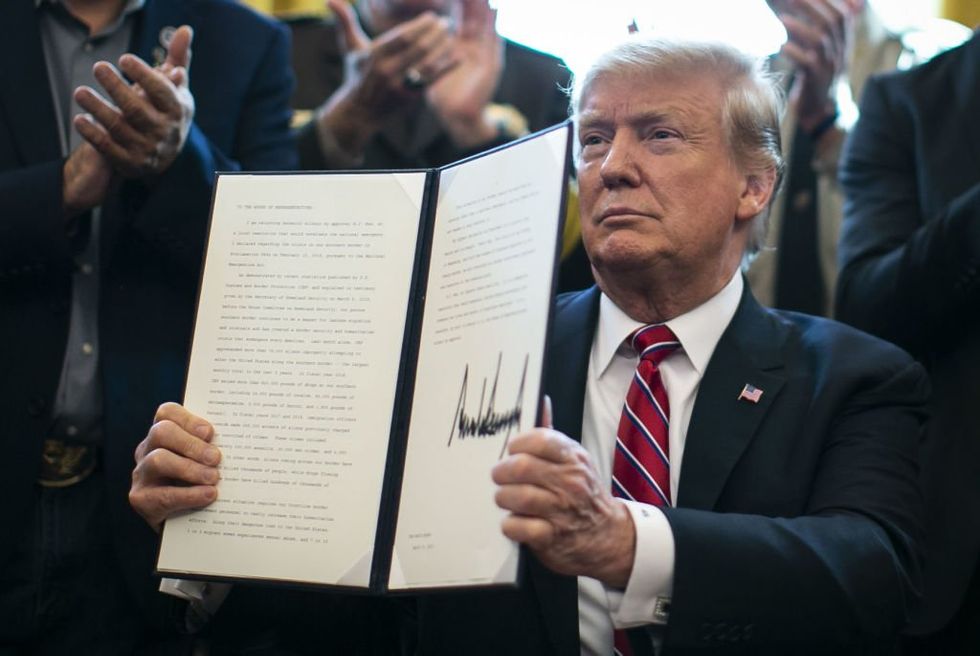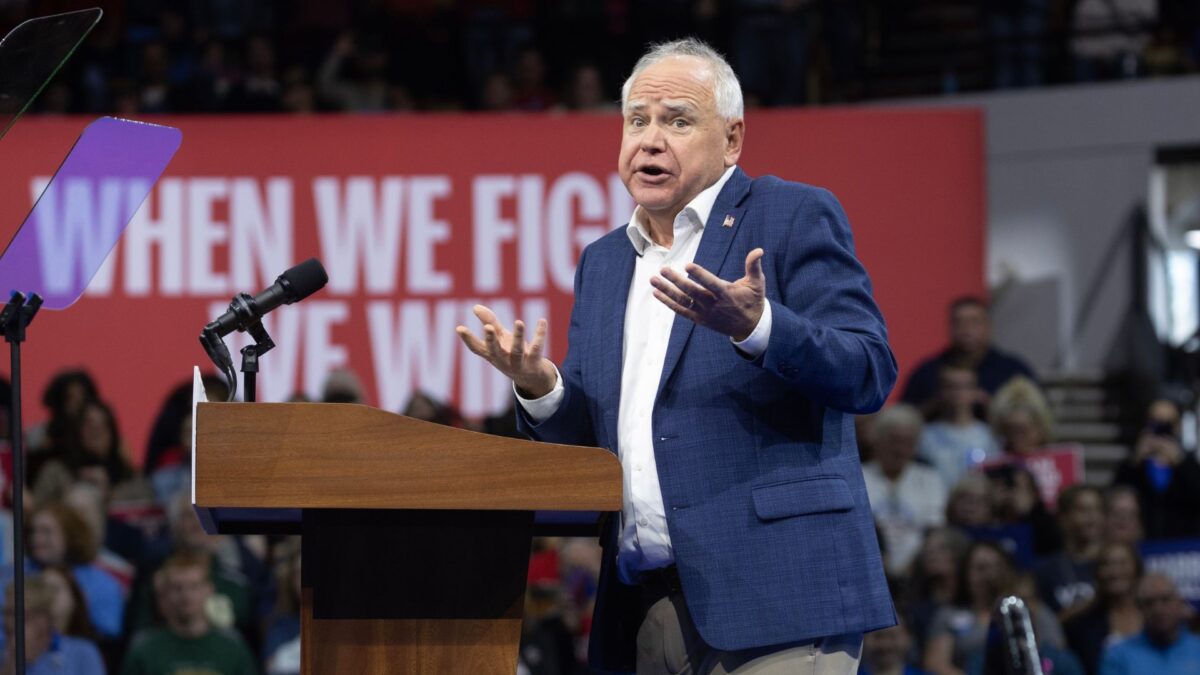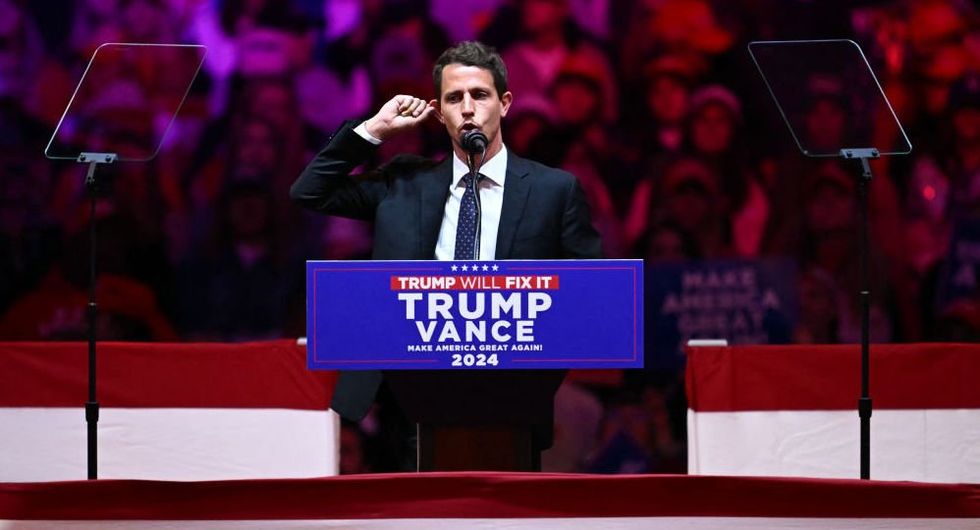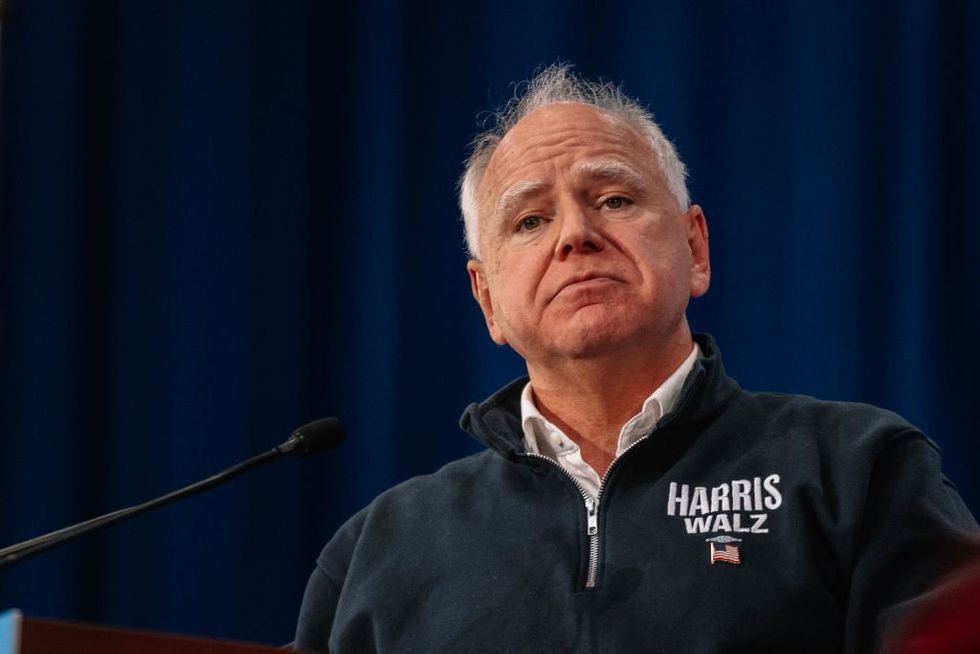The 4-letter word Trump must learn to love
It’s a four-letter word. It’s so powerful that our Founders had to weaken its authority from the original design, yet it remains rarely challenged. It’s the president’s most powerful leverage tool: the veto. If Trump wants to succeed in shrinking government where he failed in his first term, he must make this pen his constant companion — and let everyone in Congress know he’s ready to use it.While a president doesn’t pass legislation or craft the actual budget signed into law, he controls all must-pass legislation by wielding the veto. He can block any budget or program reauthorization bill that lacks spending cuts and structural reforms. Since Reagan left office, only seven presidential vetoes have been successfully overridden. It’s rare for a critical number of a president’s own party — especially if they hold the majority — to defy their leader. That’s where Trump’s leverage lies and why the veto pen matters more than any Cabinet position.Trump can simply make it clear that any reauthorization or appropriation bill lacking sufficient spending cuts and reforms will be vetoed.Trump’s veto pen saw little action during his first administration, contributing to runaway spending. In fact, he used his veto pen less frequently than any president in the past 100 years. None of his 10 vetoes came in his first two years, when Republicans controlled Congress. This points to the problem and offers a framework for a more effective term.The history behind the vetoIf we had asked the framers of the Constitution, they would likely have admitted that their master plan might unravel for various reasons. However, they probably didn’t foresee the presidential veto pen becoming a weak tool for achieving Madison’s goal of “ambition ... made to counteract ambition,” meant to balance Congress' strong power.Before proposing the veto override balance, the Founders worried that giving the president an absolute veto could shift too much power to the executive branch. During the June 4, 1787, debate, James Wilson and Alexander Hamilton proposed a veto power, but Benjamin Franklin argued that governors with veto power often used it for extortion. “No good law whatever could be passed without a private bargain with him,” Franklin complained. Roger Sherman also warned against “enabling any one man to stop the will of the whole,” doubting that “any one man could be found so far above all the rest in wisdom.”The Convention debated the need for a veto override at length. Initially, framers passed a motion to set the override threshold at three-fourths of both houses of Congress. However, after Roger Sherman, Charles Pinckney, Hugh Williamson, and Elbridge Gerry raised concerns that this high threshold could grant too much power to the president and a small number of allies, the delegates agreed on a two-thirds threshold. They also rejected Madison’s proposal for a “council of revision,” which would have placed the veto in the hands of a joint council of the president and Supreme Court justices, choosing instead to vest this power solely in the president.The Founders clearly saw the presidential veto as a potent tool, and many feared its abuse. They never anticipated that a president might be reluctant to use it.Trump’s mandate — and leverageLet’s be honest: Getting Trump’s priorities through the legislative process will be tedious without leveraging must-pass bills against a veto threat. Republicans will hold a slim three-seat majority in the House, built largely on liberal Republicans from California and New York.Transformational policies, such as reducing legal immigration, downsizing government programs, overturning the vaccine liability shield, and ending birthright citizenship, would struggle to pass the House. Each targeted program has a constituency of Republicans likely to join Democrats in opposing cuts.And that’s before facing the Senate, which is filled with RINOs who make House Republicans look like the Founding Fathers. Even on issues that unite Republicans, they’ll fall far short of the 60 votes needed to break a Democratic filibuster.This is where “must-pass” bills come in. There will be a budget bill in the spring to complete this year’s appropriations and another next fall for fiscal year 2025. A debt ceiling bill will likely come up in late spring. The annual budget reconciliation bill, which can bypass the filibuster for budgetary items, offers a major opportunity. Additionally, an array of reauthorization bills will expire during Trump’s term.Trump can simply make it clear that any reauthorization or appropriation bill lacking sufficient spending cuts and reforms will be vetoed. That leverage should be wielded and communicated early in the process. During the June 4, 1787, debate over the president’s check on Congress, James Wilson predicted the veto’s power would ensure it was “seldom” used, not because of its weakness but because Congress would avoid passing laws members knew the president would veto.Benjamin Franklin


It’s a four-letter word. It’s so powerful that our Founders had to weaken its authority from the original design, yet it remains rarely challenged. It’s the president’s most powerful leverage tool: the veto. If Trump wants to succeed in shrinking government where he failed in his first term, he must make this pen his constant companion — and let everyone in Congress know he’s ready to use it.
While a president doesn’t pass legislation or craft the actual budget signed into law, he controls all must-pass legislation by wielding the veto. He can block any budget or program reauthorization bill that lacks spending cuts and structural reforms. Since Reagan left office, only seven presidential vetoes have been successfully overridden. It’s rare for a critical number of a president’s own party — especially if they hold the majority — to defy their leader. That’s where Trump’s leverage lies and why the veto pen matters more than any Cabinet position.
Trump can simply make it clear that any reauthorization or appropriation bill lacking sufficient spending cuts and reforms will be vetoed.
Trump’s veto pen saw little action during his first administration, contributing to runaway spending. In fact, he used his veto pen less frequently than any president in the past 100 years. None of his 10 vetoes came in his first two years, when Republicans controlled Congress. This points to the problem and offers a framework for a more effective term.
The history behind the veto
If we had asked the framers of the Constitution, they would likely have admitted that their master plan might unravel for various reasons. However, they probably didn’t foresee the presidential veto pen becoming a weak tool for achieving Madison’s goal of “ambition ... made to counteract ambition,” meant to balance Congress' strong power.
Before proposing the veto override balance, the Founders worried that giving the president an absolute veto could shift too much power to the executive branch. During the June 4, 1787, debate, James Wilson and Alexander Hamilton proposed a veto power, but Benjamin Franklin argued that governors with veto power often used it for extortion. “No good law whatever could be passed without a private bargain with him,” Franklin complained. Roger Sherman also warned against “enabling any one man to stop the will of the whole,” doubting that “any one man could be found so far above all the rest in wisdom.”
The Convention debated the need for a veto override at length. Initially, framers passed a motion to set the override threshold at three-fourths of both houses of Congress. However, after Roger Sherman, Charles Pinckney, Hugh Williamson, and Elbridge Gerry raised concerns that this high threshold could grant too much power to the president and a small number of allies, the delegates agreed on a two-thirds threshold. They also rejected Madison’s proposal for a “council of revision,” which would have placed the veto in the hands of a joint council of the president and Supreme Court justices, choosing instead to vest this power solely in the president.
The Founders clearly saw the presidential veto as a potent tool, and many feared its abuse. They never anticipated that a president might be reluctant to use it.
Trump’s mandate — and leverage
Let’s be honest: Getting Trump’s priorities through the legislative process will be tedious without leveraging must-pass bills against a veto threat. Republicans will hold a slim three-seat majority in the House, built largely on liberal Republicans from California and New York.
Transformational policies, such as reducing legal immigration, downsizing government programs, overturning the vaccine liability shield, and ending birthright citizenship, would struggle to pass the House. Each targeted program has a constituency of Republicans likely to join Democrats in opposing cuts.
And that’s before facing the Senate, which is filled with RINOs who make House Republicans look like the Founding Fathers. Even on issues that unite Republicans, they’ll fall far short of the 60 votes needed to break a Democratic filibuster.
This is where “must-pass” bills come in. There will be a budget bill in the spring to complete this year’s appropriations and another next fall for fiscal year 2025. A debt ceiling bill will likely come up in late spring. The annual budget reconciliation bill, which can bypass the filibuster for budgetary items, offers a major opportunity. Additionally, an array of reauthorization bills will expire during Trump’s term.
Trump can simply make it clear that any reauthorization or appropriation bill lacking sufficient spending cuts and reforms will be vetoed. That leverage should be wielded and communicated early in the process. During the June 4, 1787, debate over the president’s check on Congress, James Wilson predicted the veto’s power would ensure it was “seldom” used, not because of its weakness but because Congress would avoid passing laws members knew the president would veto.
Benjamin Franklin disdained the veto power, seeing it as a form of extortion. Nevertheless, that’s the power a president holds. If Trump wields the veto pen, the success or failure of his two terms may hinge on this four-letter word that the Founders, with much trepidation, vested in one man.
Originally Published at Daily Wire, World Net Daily, or The Blaze
What's Your Reaction?

































































































